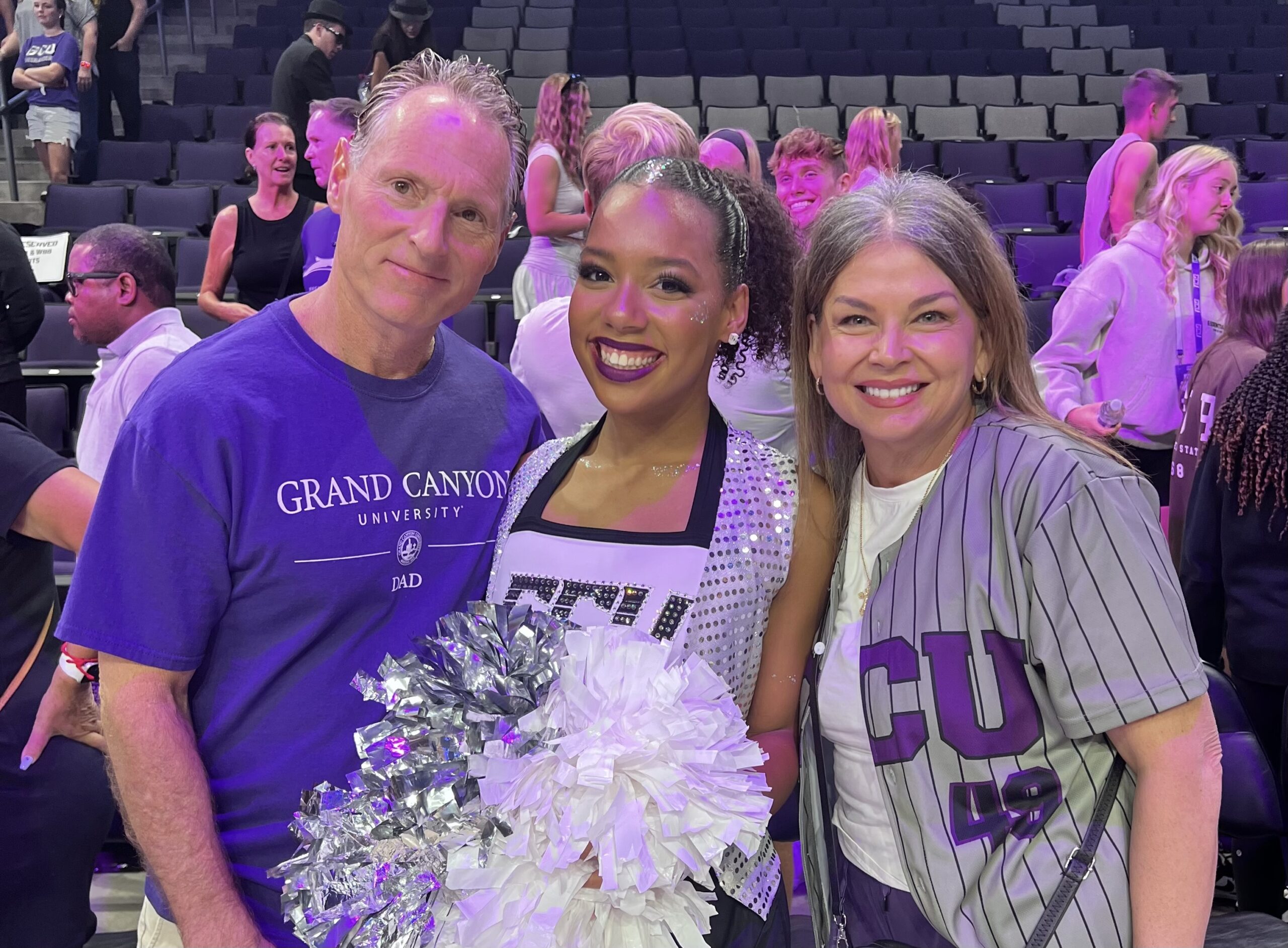Written By: Ramona Kitching
A Parent’s Perspective
Your parents have been watching you pursue your passion for dance for years! The transition from high school to college can be both as exciting and overwhelming for them as it is for you. One of the most critical parts of the recruitment and auditioning process is the one that is commonly overlooked: the interview with the college dance coach. Ironically, this is something your folks can actually help you prepare the most for! This conversation has the potential to set the tone for the future relationship between the coach and dancer, so it’s important to know what coaches are looking for. Brainstorming ideas and role playing with your parents some of these key focus areas below can help you effectively prepare and nail that interview!
1. Character and Work Ethic
Coaches want to know the type of individual they’ll be working with. As a dancer, you know you’ve grown and developed not only as a dancer but as a person. Emphasize your dedication, how you’ve overcome challenges, and your commitment to self-improvement both on and off the floor. Coaches appreciate dancers who bring determination and resilience to the table, as collegiate dance requires intense discipline in all facets of life.
2. Coachability
Dance is about growth, and coaches are looking for athletes who are open to feedback and willing to learn. As a dancer, you’ve been responding to corrections for years! Take a moment for self-reflection, as coaches will likely ask questions to assess how well you can adapt to criticism and evolve—qualities that are crucial in a team-oriented environment.
3. Team Player
Collegiate dance teams require strong group dynamics. Coaches want to know if you can blend your unique individual talents with team collaboration. Be ready to share specific examples of how you have demonstrated teamwork, whether it’s supporting individual peer teammates or contributing to the overall success of the entire group.
4. Academic Readiness
Remember, you are not only entering a competitive dance program but also an academic institution. Coaches are looking for well-rounded students who can balance the demands of both dance and schoolwork. Share the details of your strategies for excelling in time-management.
A Dance Judge’s Perspective
As a dance judge, I’ve had the privilege of evaluating tens of thousands of dancers and teams, and make no mistake, the transition from high school or studio dance team to collegiate-level dance is a GIANT leap! Collegiate coaches are scouting for athletic and artistic talent, yes, but they’re also gauging the dancer’s mindset, ability to collaborate, maturity, initiative, and independence—all major determinants to assess the readiness for the rigors of not just dance, but overall collegiate life. Within the interview, coaches will be looking for very similar characteristics that we adjudicate on the floor as dance judges:
1. Technical Proficiency
From a technical standpoint, coaches obviously expect you to have a strong foundation in technique. But they also will assess posture, alignment, eye contact, movement quality and confidence of body carriage during many of your social interactions, but especially so during the interview. Here, first impressions are truly key as dancers are commonly used as ambassadors of the universities themselves.
2. Performance Quality
Judges and coaches alike are drawn to dancers who can tell a story through movement. Coaches will ask questions that gauge a dancer’s ability to connect emotionally with their audience and their team. In the interview, you should be ready to verbally articulate how you bring artistry into performing and how you use dance as a form of expression.
3. Adaptability and Versatility
Collegiate dance programs often include a mix of styles and choreography, so versatility is key. Judges see this often during competitions and conventions, and coaches are no different in their evaluation. In the interview, coaches are likely to ask how well you can adapt to new choreography, styles and performance venues, especially those outside your comfort zone.
4. Drive for Excellence
Collegiate dance teams are often competitive by nature, and coaches will want to see that you are driven by a desire to improve constantly. They want students who aren’t just in it for the accolades but are sincere in their love of the craft and the process itself. As a judge, I’ve seen this is the hardest to “fake”, and that the dancers who succeed at the highest levels are those who consistently push themselves to keep evolving, even when they’re already perceived to be “at the top” in their current high school environment.
Bridging Both Perspectives As A Parent and Dance Judge
For both parents and dancers, understanding what collegiate dance coaches are looking for in their athletes is crucial. The interview isn’t about evaluating technical skills and athleticism but about assessing the dancer as a whole—how they handle feedback, their passion for the art and sport of dance team, and their potential to thrive in both dance and academic environments.
The most successful collegiate dancers come prepared to authentically interact and share their experiences: how they envision themselves contributing to the college’s dance program, demonstrate vulnerability in what they know their challenges to be and most importantly their plans to continue to evolve. It’s essential to show in the interview that you are a well-rounded individual with a passion for learning and growth, both in dance and in life.
Ramona Kitching has been a dance judge for over 30 years and is the proud parent of a NCAA Division I dance athlete. She currently is the Coordinator of the College Dance Launch division of Sharpen Up Dance Team Training, helping dancers prepare for the college dance team of their dreams through a holistic approach, strategic and comprehensive training plans, networking, mentorships and personalized support. For more information, check out College Dance Launch – Sharpen Up!.

